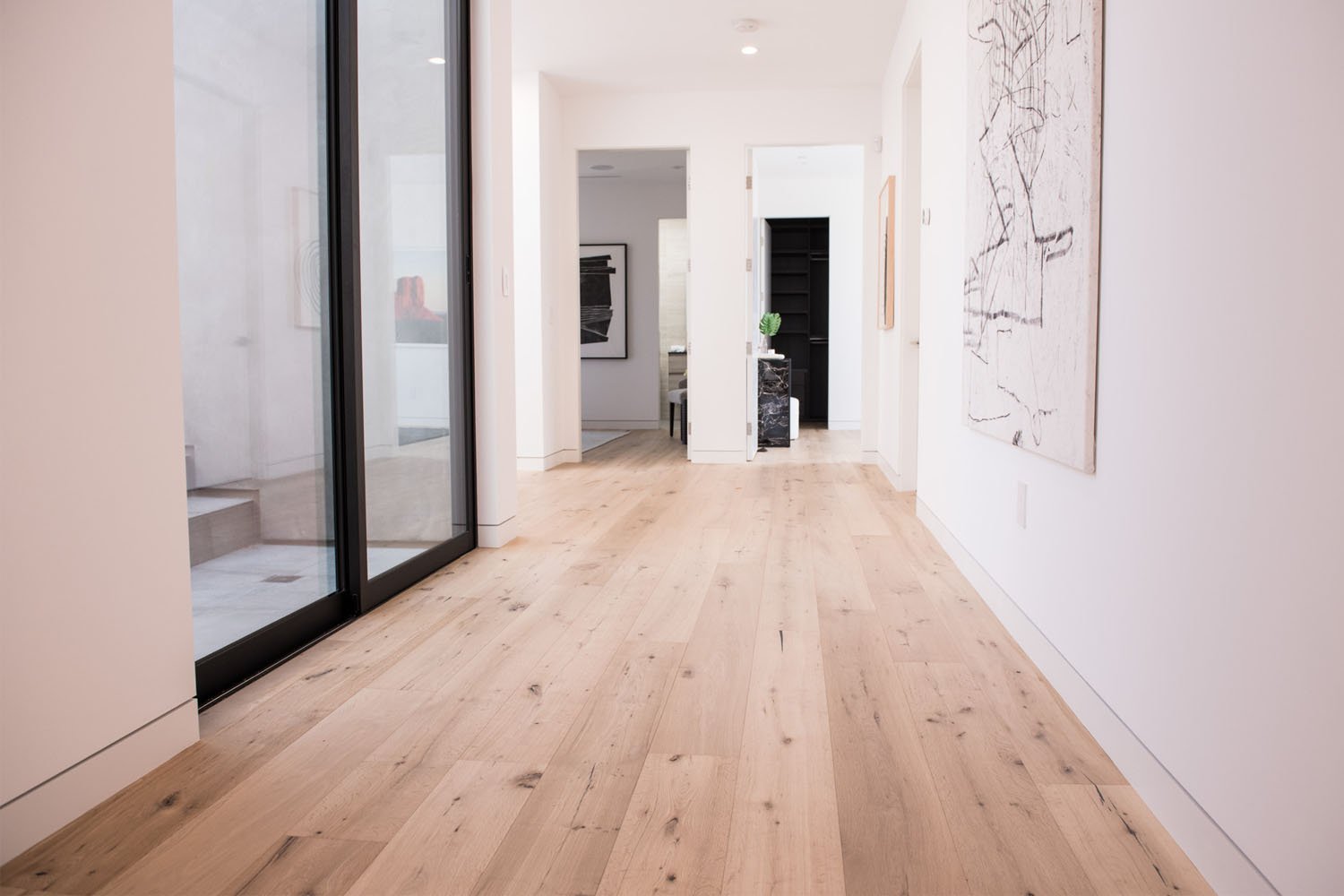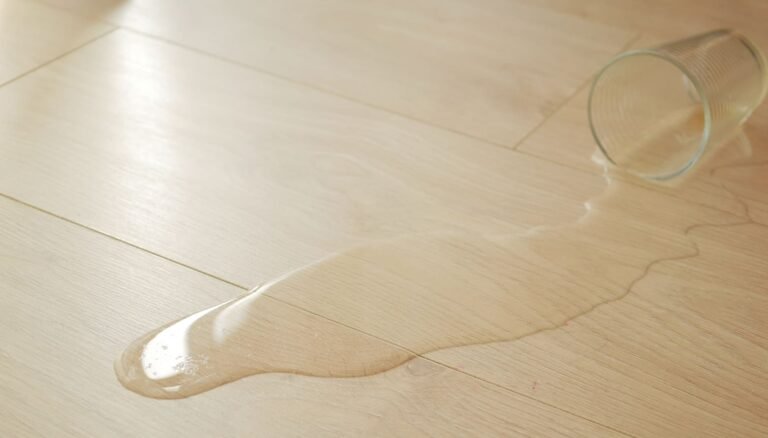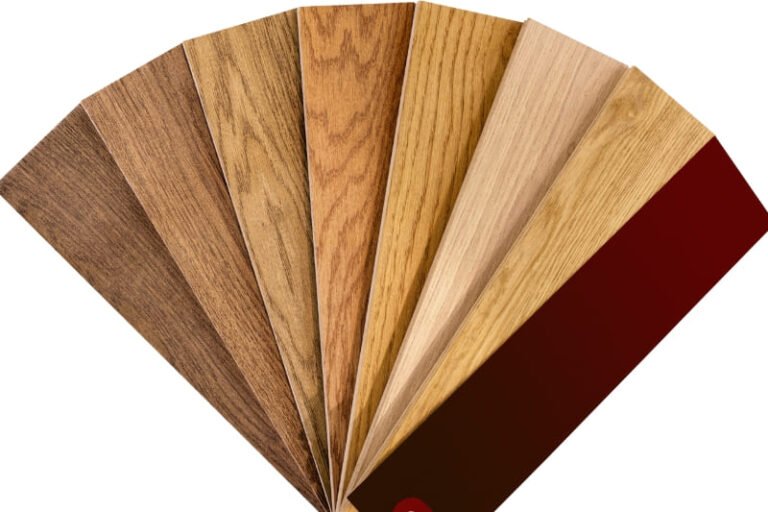3/8 vs 1/2 inch Engineered Hardwood Flooring: Which One Should You Choose?
Choosing between 3/8 vs 1/2 inch engineered hardwood flooring can transform your living space. But we know it’s a decision filled with confusion and doubt. Dive into our comprehensive guide as we unravel the mysteries behind each option, providing clear solutions to your biggest concerns. Discover how to enhance your home’s beauty and functionality with the perfect flooring choice tailored just for you.
Understanding Engineered Hardwood Flooring
What is Engineered Hardwood?
Engineered hardwood flooring is a popular and flexible choice for homeowners seeking the beauty of hardwood combined with increased durability and versatility. Unlike solid hardwood, made from a single piece of wood, engineered hardwood is constructed from multiple layers of wood veneer bonded with adhesive.

Composition of Engineered Hardwood
Engineered hardwood consists of several purposeful layers that enhance its performance and lifespan. The top layer, known as the wear layer, is a thin hardwood veneer. Beneath the wear layer are core layers made of plywood or HDF. These core layers provide structural stability and dimensional strength to the flooring. The bottom layer of engineered hardwood adds further stability.
Benefits of choosing engineered hardwood flooring
Engineered hardwood flooring offers several advantages, making it an attractive option for homeowners. Some of its benefits include:
- Increased Stability: The construction of engineered hardwood, with its multiple layers and cross-grain configuration, provides better stability and resistance to moisture.
- Versatile Installation Options: We can install engineered hardwood using various methods, such as nail-down, glue-down, or floating installation. This versatility allows for installation over various subfloor types, including concrete, plywood, or hardwood flooring.
- Wide Range of Style: When selecting engineered hardwood, homeowners can choose from diverse styles, finishes, and hardwood species, allowing them to achieve their desired aesthetic.
- Environmentally Friendly: Engineered hardwood flooring is considered more sustainable than solid hardwood since it uses less hardwood material in its construction.
Learn about engineered hardwood flooring in detail, “What is Engineered Hardwood Flooring?“.
Why Does the Thickness of Engineered Hardwood Matter?
The thickness of the planks plays an important role. Thicker-engineered hardwood is more durable and stable, reducing the risk of warping or buckling, especially in places with fluctuating temperatures or high humidity. Moreover, thicker planks provide better sound insulation. However, their installation requires specific subfloor preparation and can be challenging.
In contrast, thinner engineered hardwood is easier to install and more budget-friendly. Nonetheless, it may provide a different level of durability and sound insulation as thicker planks. Therefore, it is important to choose the thickness based on your needs and budget.
Exploring Thickness: 3/8 vs 1/2 Inch Engineered Hardwood Flooring
Pros of 3/8 inch
- Cost-Effectiveness: 3/8-inch engineered hardwood is more affordable for homeowners than its thicker counterpart, making it budget-friendly.
- Versatility: Its thin profile allows for easier installation.
- Compatibility with Heating Systems: The thin profile of 3/8-inch engineered hardwood makes it suitable for installation over a heating system, ensuring efficient heat transfer.

Cons of 3/8 inch
- Reduced Durability: Thinner planks are less durable than thicker options and are more prone to damage from heavy foot traffic or impacts.
- Limited Refinishing Options: We can refinish them only a few times due to their thinner wear layer.
Ideal scenarios for usage
3/8-inch engineered hardwood is ideal for homeowners seeking a cost-effective flooring option without compromising quality. It works well in areas with height restrictions or where compatibility with a heating system is necessary.
Pros of 1/2 inch
- Enhanced Durability: 1/2 inch engineered hardwood is thicker and more durable, offering greater resistance to wear and tear over time.
- Sound Insulation: Its thicker profile provides better sound insulation, reducing noise transmission between floors and creating a quieter living environment.
- Visual Appeal: Thicker planks showcase deeper wood grain texture, enhancing the flooring’s overall aesthetic appeal.
Cons of 1/2 inch
- Higher Cost: Thicker-engineered hardwood is generally more expensive than thinner options.
- Complex Installation: The thicker profile requires more subfloor preparation and specialized installation techniques.
Ideal scenarios for usage
1/2-inch engineered hardwood is an excellent choice for areas with high foot traffic and where durability is a primary concern. It’s also suitable for homeowners who prioritize enhanced sound insulation and desire a luxurious appearance for their flooring.
Difference between 3/8 inch & 1/2 inch
| Aspect | 3/8 Inch Flooring | 1/2 Inch Flooring |
|---|---|---|
| Wear Layer | Typically has a thinner wear layer, making it more prone to wear and tear | Comes with a thicker wear layer, offering better protection against scratches and dents |
| Finish Coating | Comes with factory-applied finish coating, which may vary in quality and durability | Features a higher quality and more durable factory- applied finish coating |
| Sanding | Can be sanded and refinished fewer times compared to thicker options. | Offers more sanding and refinishing due to its thicker wear layer |
| Price | Comparatively cheaper | Generally more expensive |
| Availability | Available in wide styles and finishes, making it a popular choice for budget-conscious consumers | Available in wide ranges of styles but may be less common due to the higher price point |
| Installation Method | Can be installed using various methods like floating, nail-down, and glue-down | Suitable for all types of installation methods |
Factors to Consider When Choosing Between 3/8 inch and 1/2 inch
When choosing between 3/8-inch and 1/2-inch engineered hardwood flooring, factors like room size, subfloor conditions, and design preferences are important. Let’s explore these factors to help you make an informed decision.
Room size and layout considerations
The size and layout of the room where you intend to install the engineered hardwood flooring are crucial factors to consider. Thinner 3/8 inch planks can create a more spacious feel in smaller rooms. In contrast, larger rooms with expansive layouts may benefit from 1/2-inch planks to enhance the appearance.
Subfloor types and conditions
The type and condition of the subfloor also determine the appropriate plank thickness. Thinner planks work well on smooth and level subfloors. However, thicker planks provide better stability if the subfloor is uneven or prone to moisture issues.
Desired aesthetic and design preferences
Personal aesthetic and design preferences are important, too. Thicker 1/2-inch planks offer a luxurious look and feel with deeper wood grain textures, enhancing the overall visual appeal. On the other hand, thinner 3/8-inch planks provide a sleek and modern appearance.
If you’re still confused about engineered hardwood’s width, read our other blog, “How thick is engineered hardwood?“.
Maintenance Tips for 3/8 inch & 1/2 inch
- Regular cleaning: Sweep or vacuum regularly to remove dust and debris that can scratch the floor.
- Use Mats: Place mats at entry points to trap dirt and moisture, preventing damage to the floor.
- Avoid Standing Water: Wipe up spills promptly to prevent water from seeping into the seams and causing warping or buckling.
- Use Furniture Pads: Place felt or rubber pads under furniture legs to prevent scratches and dents on the floor.

Our other blog, “How to clean engineered hardwood?” explains how to clean engineered hardwood in detail.
Choosing Between 3/8 VS 1/2 Inch Engineered Hardwood Flooring
Deciding between 3/8-inch and 1/2-inch engineered hardwood flooring depends on room size, subfloor conditions, and design preferences. Thinner 3/8-inch planks are cost-effective and versatile, suitable for areas with height restrictions or compatibility with heating systems. Thicker 1/2-inch planks offer durability, sound insulation, and visual appeal, making them ideal for high-traffic areas or homeowners who prioritize a luxurious flooring aesthetic. Considering these factors, you can make an informed decision that suits your needs and preferences.
Villagio Wood Floors is your trusted wholesale partner for high-quality engineered hardwood flooring options. We offer a wide range of styles, finishes, and hardwood species to help you find the perfect flooring solution for your project. With our commitment to quality and customer satisfaction, Villagio Wood Floors is here to help you elevate your space with beautiful and durable engineered hardwood flooring. Explore our collection today and transform your space.
3/8 vs 1/2 inch Engineered Hardwood Flooring – FAQs
Can engineered hardwood flooring be refinished like solid hardwood?
Yes! It is possible to refinish engineered hardwood flooring can be refinished. However, the number of times we can refinish it depends on the thickness of the top layer. A thicker wear layer allows for more refinishing, while a thinner wear layer may have lesser refinishing.
Is thicker engineered wood better?
Thicker-engineered hardwood is often more durable and stable, making it ideal for higher foot traffic areas.
How long does engineered hardwood flooring typically last?
The lifespan of engineered hardwood flooring varies depending on product quality, maintenance, and environmental conditions. Well-maintained engineered hardwood flooring can last between 20 to 30 years or more.
Can engineered hardwood be used in high-traffic areas?
Yes! Due to its unique construction, engineered hardwood flooring can handle heavy foot traffic.
Is there a noticeable difference in sound between 3/8 inch and 1/2 inch engineered hardwood?
Thicker-engineered hardwood planks provide better sound insulation than thinner planks. The difference in sound varies depending on other factors, such as subfloor type and installation method.














